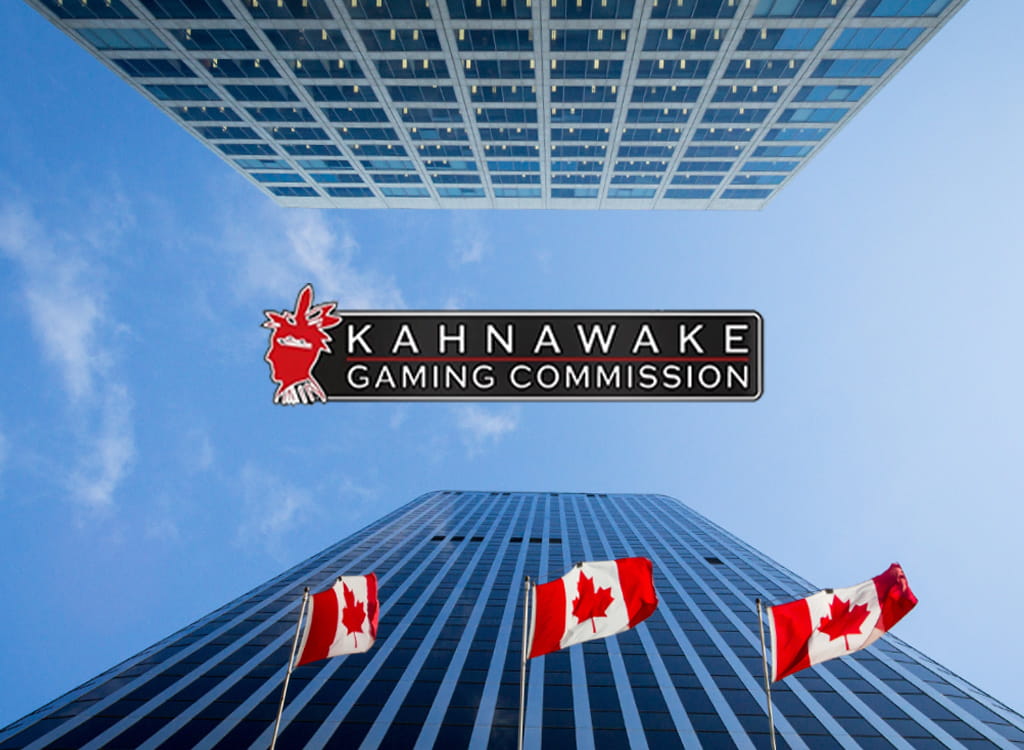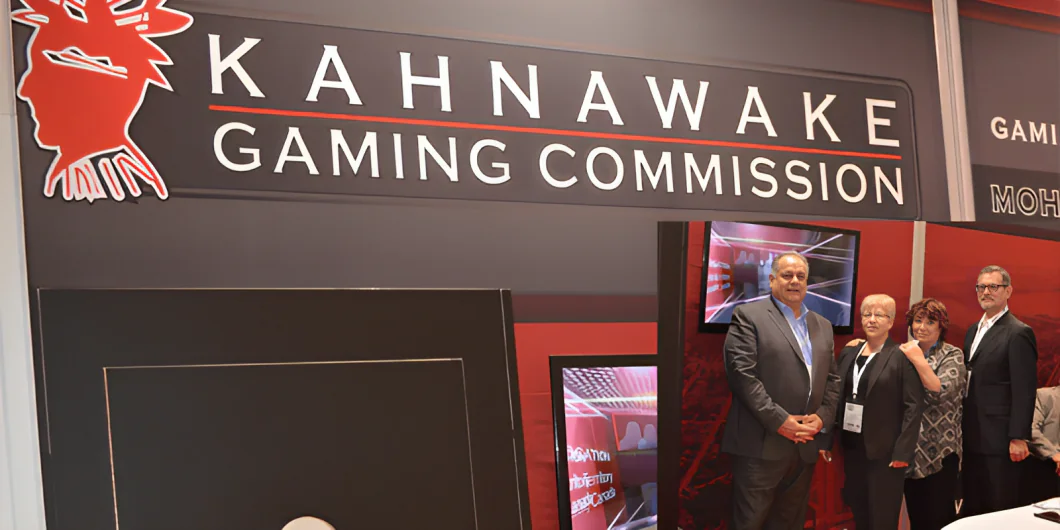
Regulating the Digital Frontier: Inside the Kahnawake Gaming Commission’s Enduring Influence
In the sprawling, often nebulous landscape of online gaming, where digital transactions transcend borders and virtual casinos operate beyond traditional jurisdictions, one name consistently emerges as both a pioneer and a paradox: the Kahnawake Gaming Commission (KGC). Nestled within the sovereign Mohawk territory of Kahnawake, just south of Montreal, Quebec, this commission has, for over two decades, carved out a unique and influential niche as a leading regulator in the global online gambling industry. Its story is one of self-determination, innovation, and an unwavering commitment to integrity in a sector often plagued by uncertainty.
The KGC’s journey began not out of a pre-existing regulatory framework, but from a bold assertion of indigenous sovereignty and a keen eye for emerging economic opportunities. In the nascent days of the internet, when online gambling was still finding its commercial footing and legal frameworks were virtually non-existent, the Mohawk Council of Kahnawake recognized the potential of this digital frontier. Unlike many jurisdictions that hesitated or outright banned online gaming, Kahnawake saw an opportunity to establish its own independent regulatory body, leveraging its inherent right to self-governance.
"We weren’t waiting for others to tell us how to regulate," a hypothetical KGC spokesperson might explain, echoing the spirit of its early days. "We looked at the internet, saw a global industry forming, and decided to build a regulatory framework from the ground up, tailored specifically for the online environment, and grounded in our principles of self-determination."

A Foundation of Sovereignty and Principle
Established in 1996, and issuing its first licenses in 1999, the KGC was among the very first jurisdictions in the world to regulate online gaming. This early entry provided an invaluable head start, allowing the commission to develop a robust and comprehensive set of regulations that have since influenced other emerging regulatory bodies globally.
At the heart of the KGC’s operational philosophy are four core principles:
- Protecting the Player: Ensuring fairness, security, and responsible gaming practices.
- Maintaining Integrity: Preventing criminal activity, fraud, and money laundering.
- Ensuring Fairness: Guaranteeing that games are conducted honestly and transparently.
- Promoting Responsible Conduct: Encouraging operators to uphold high ethical standards.
![]()
These principles are not mere platitudes but are meticulously woven into the fabric of the KGC’s regulations, which are arguably among the most stringent and detailed in the industry.
The Regulatory Framework: A Deep Dive
The KGC’s regulatory regime is comprehensive, covering every facet of an online gaming operation. It starts with the licensing process, which is notoriously rigorous. Unlike some "rubber stamp" jurisdictions, Kahnawake demands extensive due diligence from its applicants. There are primarily two types of licenses issued:
- Interactive Gaming Licence (IGL): This is the master license, typically held by an entity that operates a physical hosting facility within Kahnawake, from which it provides services to Client Providers. Currently, only Mohawk Internet Technologies (MIT) holds an IGL.
- Client Provider Authorisation (CPA): This is the more common license, issued to operators (online casinos, poker rooms, sportsbooks) who wish to offer their services globally and utilize the facilities of an IGL holder.
To obtain a CPA, applicants undergo a stringent vetting process that examines:
- Corporate Structure and Ownership: Complete transparency is required, tracing beneficial ownership to its ultimate individuals. Background checks are conducted on all key personnel, including directors, shareholders, and senior management. Any individual with a history of criminal activity, financial impropriety, or links to organized crime is immediately disqualified.
- Financial Stability: Applicants must demonstrate robust financial health, proving they have sufficient capital to operate responsibly and cover player winnings. This includes audited financial statements and detailed business plans.
- Operational Procedures: Detailed plans are required for everything from customer support protocols and payment processing to marketing strategies and internal controls.
"The KGC doesn’t just hand out licenses; they scrutinize every aspect of an applicant’s business, from their financial stability to the integrity of their leadership," notes a gaming industry consultant. "This thoroughness has built a reputation for reliability, making a KGC license a mark of credibility for operators."
Player Protection: The Cornerstone
Perhaps the most critical aspect of the KGC’s regulations revolves around player protection. Recognizing the inherent risks associated with online gambling, the commission has implemented strict rules designed to safeguard consumers:
- Age Verification: Operators are mandated to employ robust systems to prevent underage gambling. All players must be at least 18 years old (or the legal age in their jurisdiction, if higher) and identity verification is a cornerstone of the sign-up process.
- Responsible Gaming: This is a major focus. Operators must provide tools for players to manage their gambling habits, including:
- Self-Exclusion: Allowing players to voluntarily ban themselves from a site for a specified period or permanently.
- Deposit Limits: Enabling players to set limits on how much they can deposit over a given timeframe.
- Time Limits: Allowing players to set limits on how long they can play.
- Links to problem gambling support organizations must be prominently displayed.
- Fair Play and Game Integrity: All games offered by KGC-licensed operators must be demonstrably fair. This involves:
- Random Number Generator (RNG) Certification: Independent third-party auditors must certify that the RNGs used in games are truly random and unbiased.
- Payout Percentage Audits: Regular audits ensure that games are paying out at their advertised percentages.
- Clear Terms and Conditions: All rules, bonus terms, and payout policies must be transparently displayed and easily accessible to players.
- Dispute Resolution: The KGC offers a formal complaint procedure for players who have disputes with licensed operators. While encouraging players and operators to resolve issues directly first, the commission acts as an impartial arbiter, investigating claims and enforcing fair resolutions. This provides a crucial layer of trust for players, knowing there’s an independent body to turn to if issues arise.
Combating Financial Crime: AML and KYC
In an era of increasing global scrutiny over financial transactions, the KGC has taken a proactive stance against money laundering and terrorist financing. Its Anti-Money Laundering (AML) and Know Your Customer (KYC) regulations are stringent and align with international standards. Operators are required to:
- Verify Player Identities: Beyond basic age verification, operators must collect and verify comprehensive identity documents (passports, driver’s licenses, utility bills) to confirm the true identity of their players.
- Monitor Transactions: Suspicious transaction monitoring systems are mandatory to detect unusual patterns of deposits, withdrawals, or betting activity that could indicate money laundering.
- Report Suspicious Activity: Operators must have robust internal policies for reporting suspicious transactions to the relevant authorities, in compliance with Canadian financial intelligence unit regulations.
- Source of Funds/Wealth: For large transactions, operators may be required to ascertain the source of a player’s funds or wealth, adding another layer of defense against illicit financial flows.
This commitment to financial integrity helps to legitimize the online gaming industry and ensures that Kahnawake-licensed sites are not used as conduits for criminal enterprises.
Technological Rigor and Infrastructure
The KGC’s regulations also extend to the technical infrastructure that underpins online gaming operations. Given that the internet is the primary medium, robust technological standards are paramount:
- Data Security: Operators must implement state-of-the-art encryption technologies (e.g., SSL) to protect player data, financial transactions, and communication.
- Server Location: A crucial aspect of the KGC’s unique model is that all servers and gaming software for Client Providers must be physically located within the Kahnawake territory, hosted by the IGL holder (Mohawk Internet Technologies). This provides the KGC with direct oversight and physical control over the gaming operations it regulates, a distinct advantage over some jurisdictions that license operators without requiring local server presence.
- Business Continuity and Disaster Recovery: Operators must have plans in place to ensure continuous service even in the event of technical failures or disasters, minimizing disruption for players.
This emphasis on secure and well-managed technology underscores the KGC’s understanding of the digital environment and its commitment to operational reliability.
Challenges and the Path Forward
Despite its pioneering status and rigorous standards, the KGC has not been without its challenges. The very autonomy that gives it strength can also be a source of international misunderstanding. As a First Nations jurisdiction, its regulatory authority is rooted in Mohawk sovereignty, which some national governments outside of Canada may not fully recognize or understand within their own legal frameworks. This has occasionally led to complexities regarding market access in certain countries, though the KGC’s long-standing reputation for integrity often mitigates these issues.
Furthermore, the global online gaming landscape has become increasingly competitive, with new jurisdictions emerging and established ones refining their own regulations. The KGC must continually adapt to evolving technologies, new payment methods (like cryptocurrencies), and changing consumer behaviors to maintain its relevance and leadership position.
"The industry never stands still," a KGC official might reflect. "We must constantly review and update our regulations to address new challenges, protect against emerging threats, and ensure we remain at the forefront of responsible gaming."
Conclusion
The Kahnawake Gaming Commission stands as a testament to the power of self-determination and forward-thinking vision. From its humble beginnings as a bold assertion of Mohawk sovereignty in the nascent internet era, it has evolved into a highly respected and influential regulatory body. Its comprehensive regulations, unwavering commitment to player protection, and stringent anti-money laundering protocols have earned it a reputation for reliability and integrity in a complex global industry.
As the digital frontier continues to expand and evolve, the KGC’s role remains crucial. It is not just a licensing authority; it is a guardian of fairness, a protector of players, and a standard-bearer for responsible conduct in the online gaming world. In an industry where trust is the ultimate currency, the Kahnawake Gaming Commission continues to demonstrate that a blend of cultural sovereignty and regulatory excellence can indeed create a lasting and impactful legacy.


